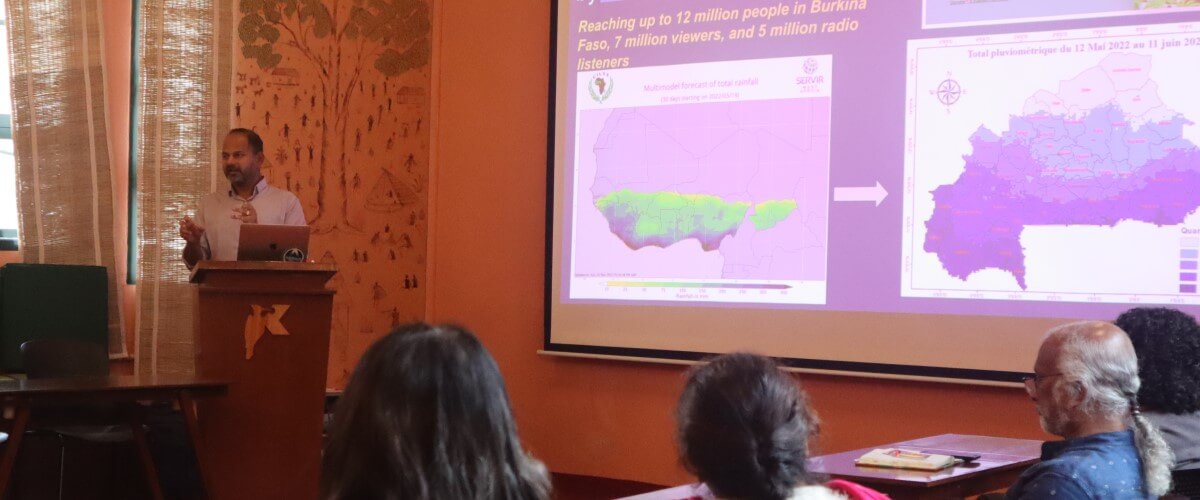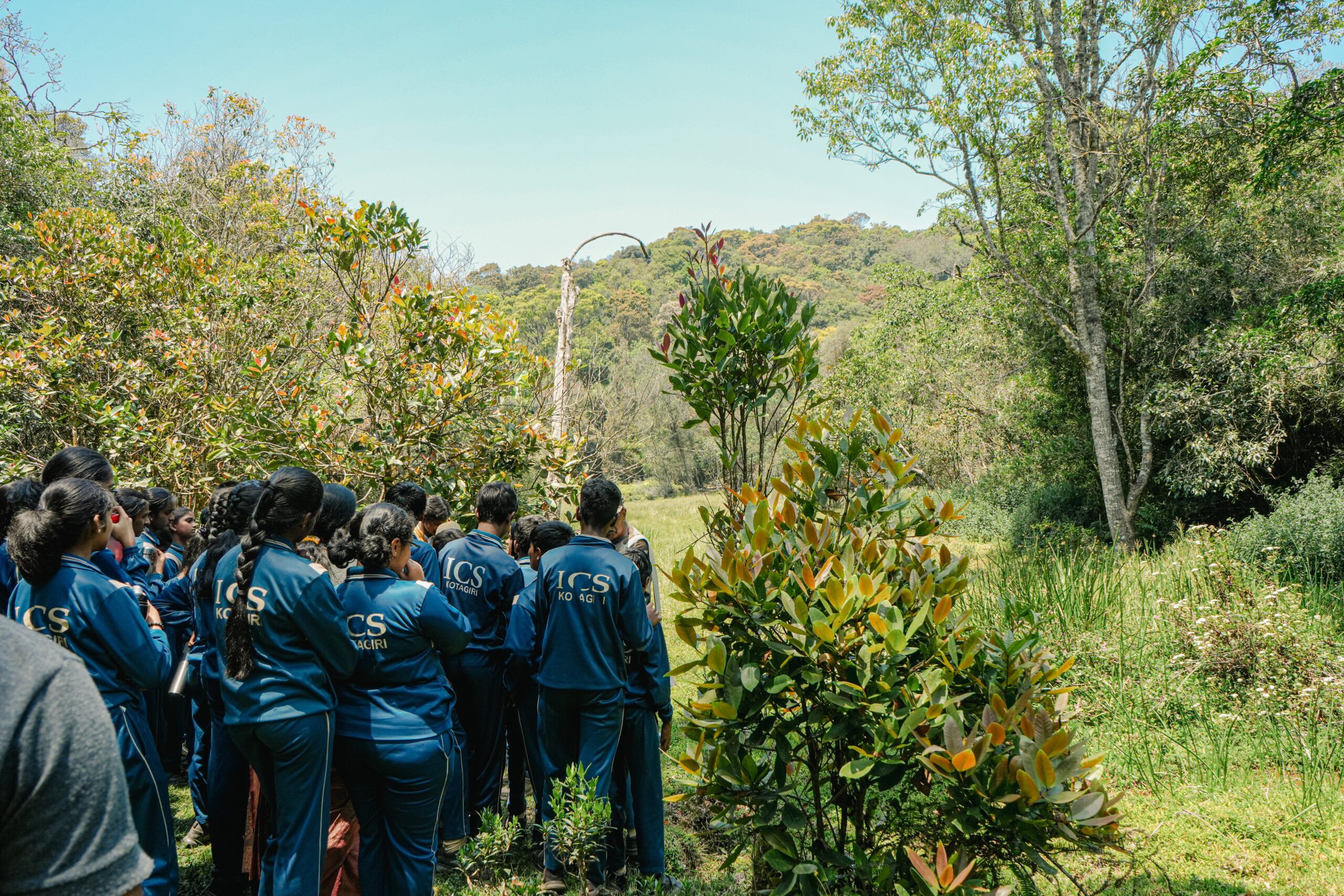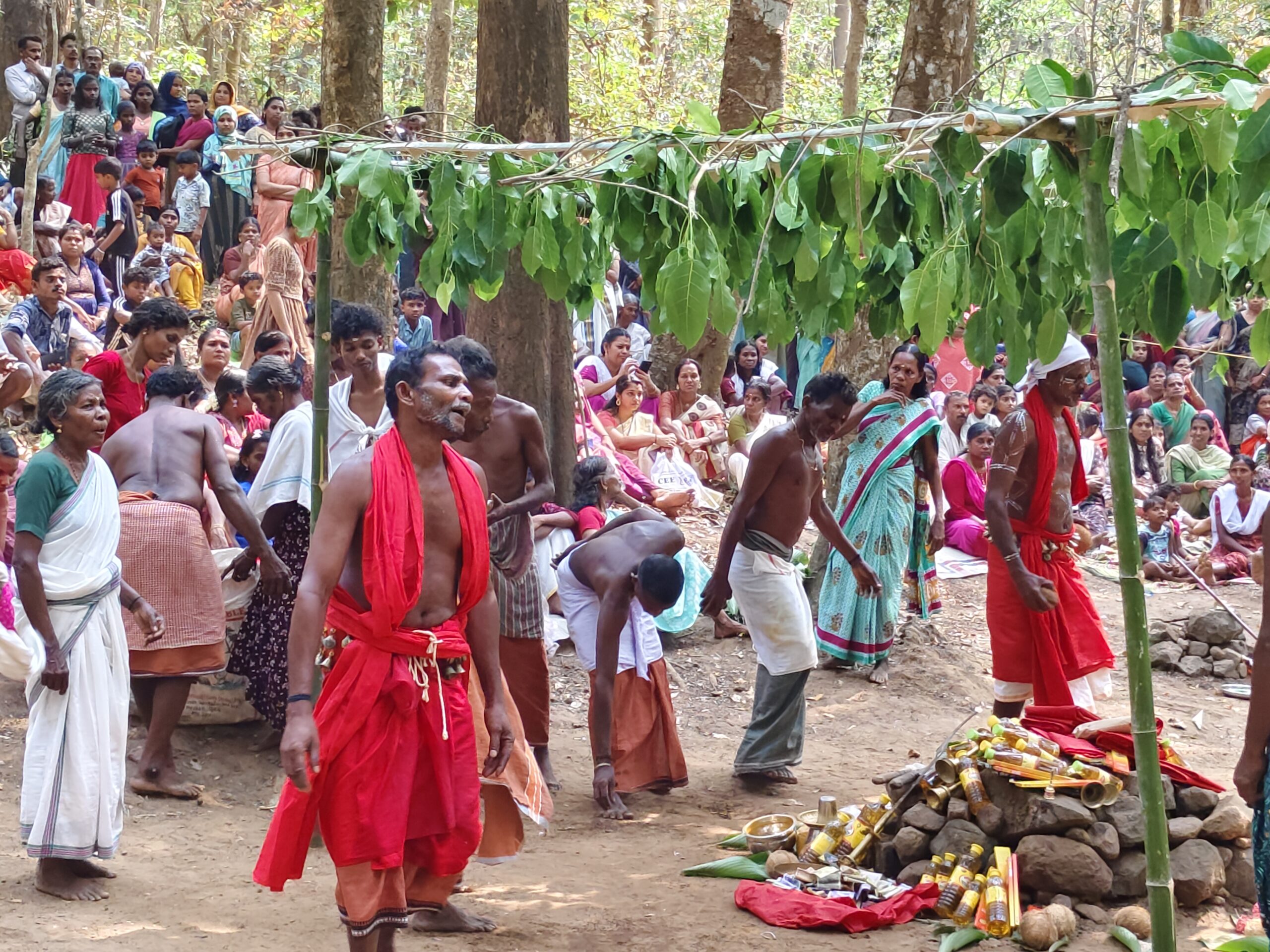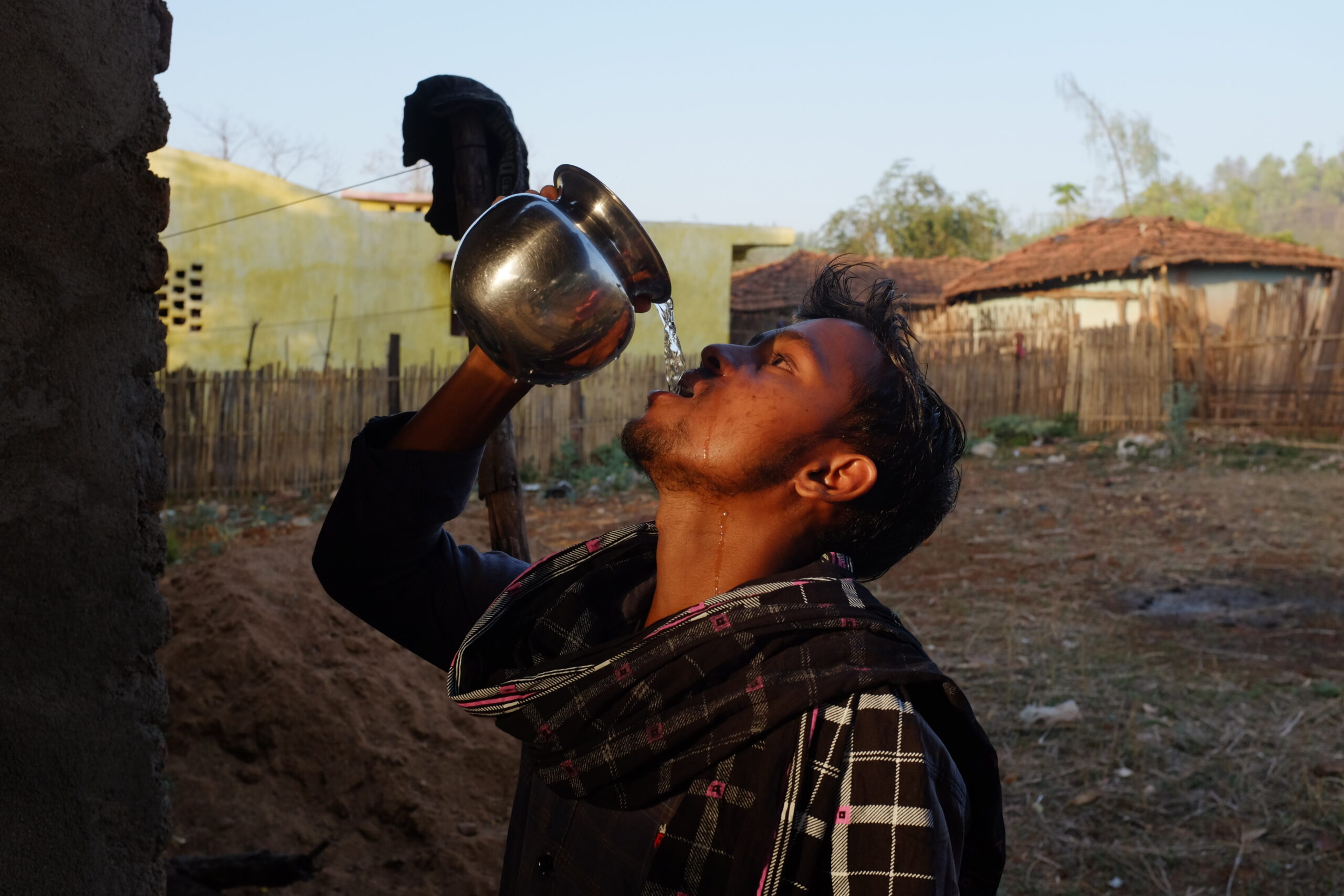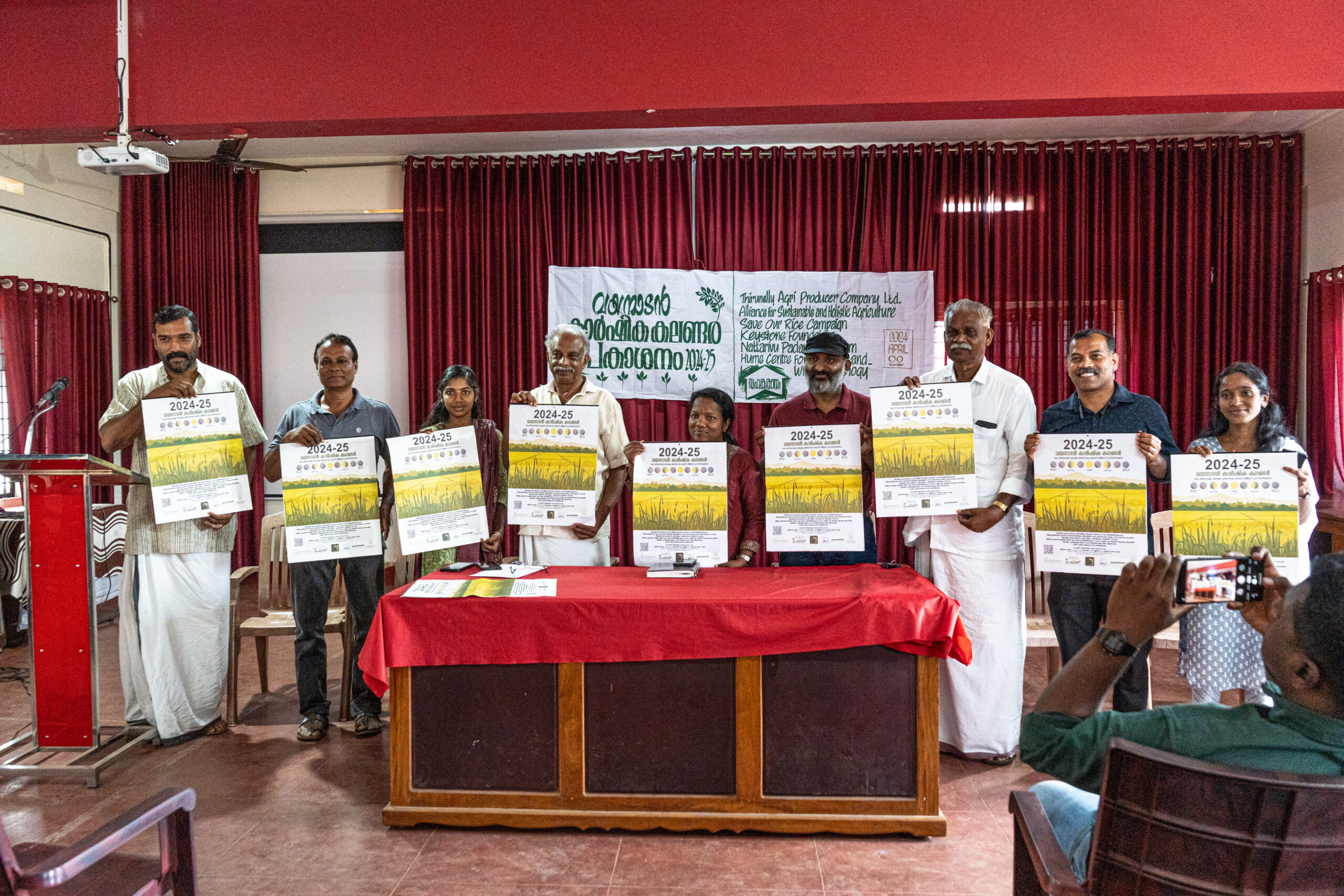May 24, 2023
By Vaishnavi Patil & Yashaswini Narayanappa, Climate Change programme
On May 9, Keystone received the privileged to host a talk titled ‘Multi-stage Drought Prediction to support Food Insecurity Early Warning’ by Dr. Shrad Shukla, a Fulbright Specialist from University of California – Santa Barbara. A large-scale hydrologist with expertise in drought monitoring and seasonal scale climate and drought forecasting, he is an Associate Researcher at the Climate Hazard Center at the UCSB. His research focuses on leveraging capacity building to improve drought monitoring and early warning capabilities using advanced Earth Observations and Remote Sensing datasets and models.
Being the ‘Weather and Climate’ lead for NASA and USAID’s SERVIR’s Applied Sciences Team, Dr. Shrad brought his expertise and proficiency with Earth Observations to the Keystone campus. He helped us gain insights in predicting climate-driven droughts to mitigate food insecurity impacts. Through the talk, he described the stages involved in conducting such predictions and the application of climate forecasts at multiple scales.
The talk reiterated the need for integrating real-time observations in providing precise forecasts. We sought to bolster our dedication towards on-ground climate action with the relevant technologies enumerated in the talk. Thus, Keystone became the beneficiary of Dr. Shrad’s two-day workshop on ‘Earth Observations (EO) Data Analysis, Processing and Visualisation’ held on May 17 and 19, with final presentations from participants on May 24.
The training helped us utilize web-based applications to swiftly access and visualize earth observations. We learned to harness Earth Observations for climate monitoring, particularly to analyse drought and pluvial conditions. It taught us to extract gridded and time-series data across different domains without needing to download excessive data. Asish from Biodiversity Conservation states, “Training was very useful. Monitoring climate parameters and analysis became easy. Otherwise downloading the satellite images of each place takes up so much of our time.”
The participants were given hands-on assignments to explore the potential of such web-based tools. We were encouraged to find their use-cases within our fields of expertise. “It was good training,” says Sriram, from the Community Wellbeing programme. “I am mostly working on agriculture-related projects so I can use this training to understand more about an area and observe climate change to improve agriculture.” Similarly, Vandana from the Biodiversity team in Sathyamangalam states, “Shrad’s training introduced me to new climate-related open access data sources and quick analysis methods. The web applications will be very useful in my biodiversity assessment projects.” Moreover, Lakshminarayan from the Community Wellbeing programme feels grateful to get familiarised with satellite data of variables like rainfall, land surface temperature and soil moisture as it would help him think about climate-resilient crops for livelihood projects among farmers.
After gaining the requisite skills through the workshop, the participants were pushed to collaborate and create a cross-disciplinary project using EO data analysis and visualisation. The training, while motivating us to make full use of the tools, also sparked an opportunity for team building across Keystone programmes. Community and Wellbeing programme’s technical coordinator, Deepak says, “While it was interesting to learn about open-source and free access web tools and datasets, it was fun to use them in the hands-on training exercises and project. I learned new things from the projects done by my colleagues.” Yashaswini, while affirming the benefits of the workshop, expresses, “Discovering the amount of open-access datasets greatly piqued my interest in climate observations. I had so much fun doing the exercises and the projects and gained some really cool insights along the way.”

